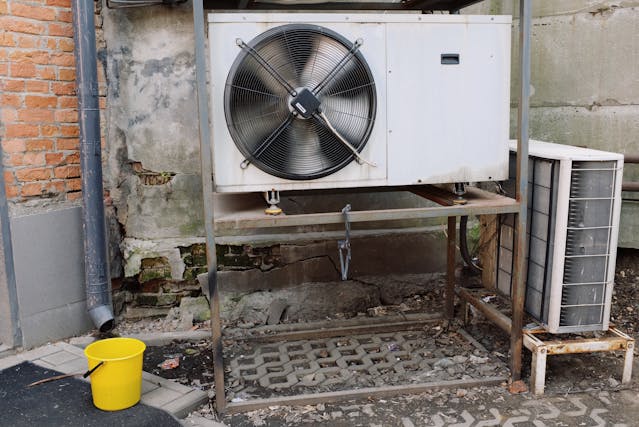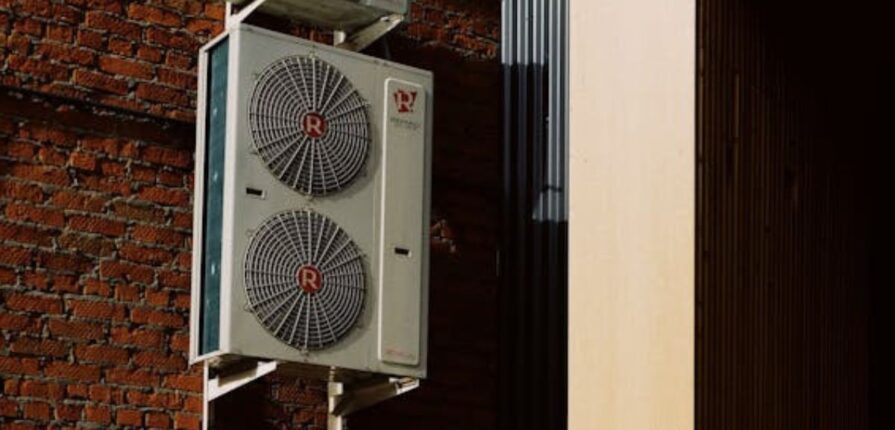Maintaining a comfortable indoor environment is essential for any household or commercial space, and a well-functioning HVAC (Heating, Ventilation, and Air Conditioning) system plays a crucial role in achieving this.

However, many people overlook the importance of regular maintenance, leading to issues such as decreased efficiency, higher energy bills, and even system breakdowns. In this article, we’ll explore the optimal frequency for servicing your HVAC system to ensure its longevity and peak performance.
Introduction to HVAC Systems
Before delving into the maintenance aspect, let’s briefly understand what an HVAC system entails. It comprises various components, including the furnace, air conditioner, ductwork, thermostat, and ventilation system, all working together to regulate temperature, humidity, and air quality within a building.
Importance of Regular Servicing
Regular servicing of your HVAC system offers several benefits that contribute to its overall functionality and efficiency.
Energy Efficiency
One of the primary reasons for scheduling regular maintenance is to ensure that your HVAC system operates at peak efficiency. Over time, dirt buildup, worn-out components, and other issues can cause the system to work harder, leading to increased energy consumption and higher utility bills. By servicing your HVAC system regularly, you can address these issues promptly, thereby optimizing energy efficiency and reducing operating costs.
Prolonged Lifespan
Like any mechanical system, an HVAC unit is subject to wear and tear with prolonged use. However, proper maintenance can significantly extend its lifespan by identifying and addressing potential problems before they escalate. By investing in routine servicing, you not only protect your HVAC system but also save money in the long run by avoiding costly repairs or premature replacement.
Indoor Air Quality
Another critical aspect of HVAC maintenance is ensuring good indoor air quality. A clean and well-maintained system prevents the circulation of dust, allergens, and other pollutants throughout your home or office. Regular filter replacements, duct cleaning, and system inspections help to minimize indoor air contaminants, creating a healthier and more comfortable environment for occupants.
Frequency of HVAC Servicing
Now, let’s address the burning question: how often should you service your HVAC system?
Seasonal Check-ups
It’s recommended to schedule a professional HVAC inspection and maintenance service at least once a year, ideally before the start of the heating or cooling season. This routine check-up allows HVAC technicians to assess the system’s overall condition, perform necessary adjustments, and address any issues that may have arisen since the last service.
Biannual Maintenance
For optimal performance and efficiency, some experts suggest scheduling biannual maintenance appointments, typically in the spring and fall. These comprehensive tune-ups involve thorough cleaning, lubrication, and testing of all system components to ensure smooth operation year-round.
Signs That Indicate the Need for Immediate Servicing
In addition to regular maintenance schedules, it’s essential to be vigilant for any signs of HVAC problems that may require immediate attention. These warning signs include unusual noises, uneven heating or cooling, frequent cycling, and sudden spikes in energy consumption. If you notice any of these symptoms, don’t hesitate to contact a qualified HVAC technician for diagnosis and repairs.
DIY Maintenance Tips
While professional servicing is crucial for optimal HVAC performance, there are several DIY maintenance tasks that homeowners can perform to keep their systems running smoothly between service appointments.
Regular Filter Replacement
One of the simplest yet most effective ways to maintain your HVAC system is by regularly replacing its air filters. Clogged or dirty filters restrict airflow, strain the system, and compromise indoor air quality. Check your filters monthly and replace them as needed, typically every 1-3 months depending on usage and filter type.
Keeping Vents Clean
Ensure that your supply and return vents are free from obstruction to allow for proper airflow throughout your home or building. Vacuuming or dusting vents regularly prevents dust and debris buildup, which can impede airflow and reduce system efficiency.
Monitoring Thermostat Settings
Optimizing your thermostat settings can help reduce energy consumption and prolong the lifespan of your HVAC system. Consider investing in a programmable thermostat to adjust temperature settings automatically based on your schedule, thereby minimizing unnecessary heating or cooling when no one is home.
Benefits of Professional Maintenance
While DIY maintenance is beneficial, there are certain tasks that only a qualified HVAC technician can perform effectively.
Comprehensive Inspection
During a professional maintenance visit, HVAC technicians conduct a thorough inspection of your system, identifying potential issues and recommending appropriate solutions. This proactive approach helps prevent major breakdowns and costly repairs down the line.
Preventative Repairs
In addition to routine maintenance tasks, HVAC professionals can perform preventative repairs to address minor issues before they escalate into more significant problems. By addressing these issues early on, you can avoid unexpected breakdowns and ensure uninterrupted comfort throughout the year.
Expert Advice
Perhaps most importantly, HVAC technicians can provide valuable advice on optimizing your system for efficiency, comfort, and longevity. Whether it’s recommending energy-saving upgrades, providing tips for better indoor air quality, or answering your maintenance questions, their expertise can help you make informed decisions about your HVAC system.
Cost Considerations
Some homeowners may be hesitant to invest in professional HVAC maintenance due to perceived costs. However, it’s essential to consider the long-term savings and benefits of regular servicing.
Comparison of DIY vs. Professional Servicing Costs
While DIY maintenance may seem cost-effective initially, it’s essential to weigh the potential risks and benefits. A small investment in professional servicing can pay off in the form of lower energy bills, reduced repair costs, and prolonged system lifespan.
Long-term Savings
By addressing minor issues early on and ensuring optimal system performance, regular HVAC maintenance can save you money in the long run. Preventative maintenance helps avoid costly repairs and premature replacements, allowing you to enjoy reliable comfort and peace of mind for years to come.
Conclusion
In conclusion, regular servicing is vital for maintaining the performance, efficiency, and longevity of your HVAC system. By scheduling routine maintenance appointments, performing DIY tasks, and staying vigilant for signs of trouble, you can ensure that your HVAC system operates smoothly and reliably year-round.
Faq
It’s recommended to replace air filters every 1-3 months, depending on usage and filter type.
Common signs include unusual noises, uneven heating or cooling, frequent cycling, and increased energy consumption.
Yes, investing in professional maintenance can save you money in the long run by preventing costly repairs and prolonging the system’s lifespan.
While some tasks can be done DIY, such as filter replacement and vent cleaning, it’s essential to have a professional technician perform comprehensive maintenance to ensure optimal system performance.
Look for licensed and experienced HVAC companies with positive reviews and certifications. Asking for recommendations from friends or family members is also a good way to find reputable technicians.


Recent Comments